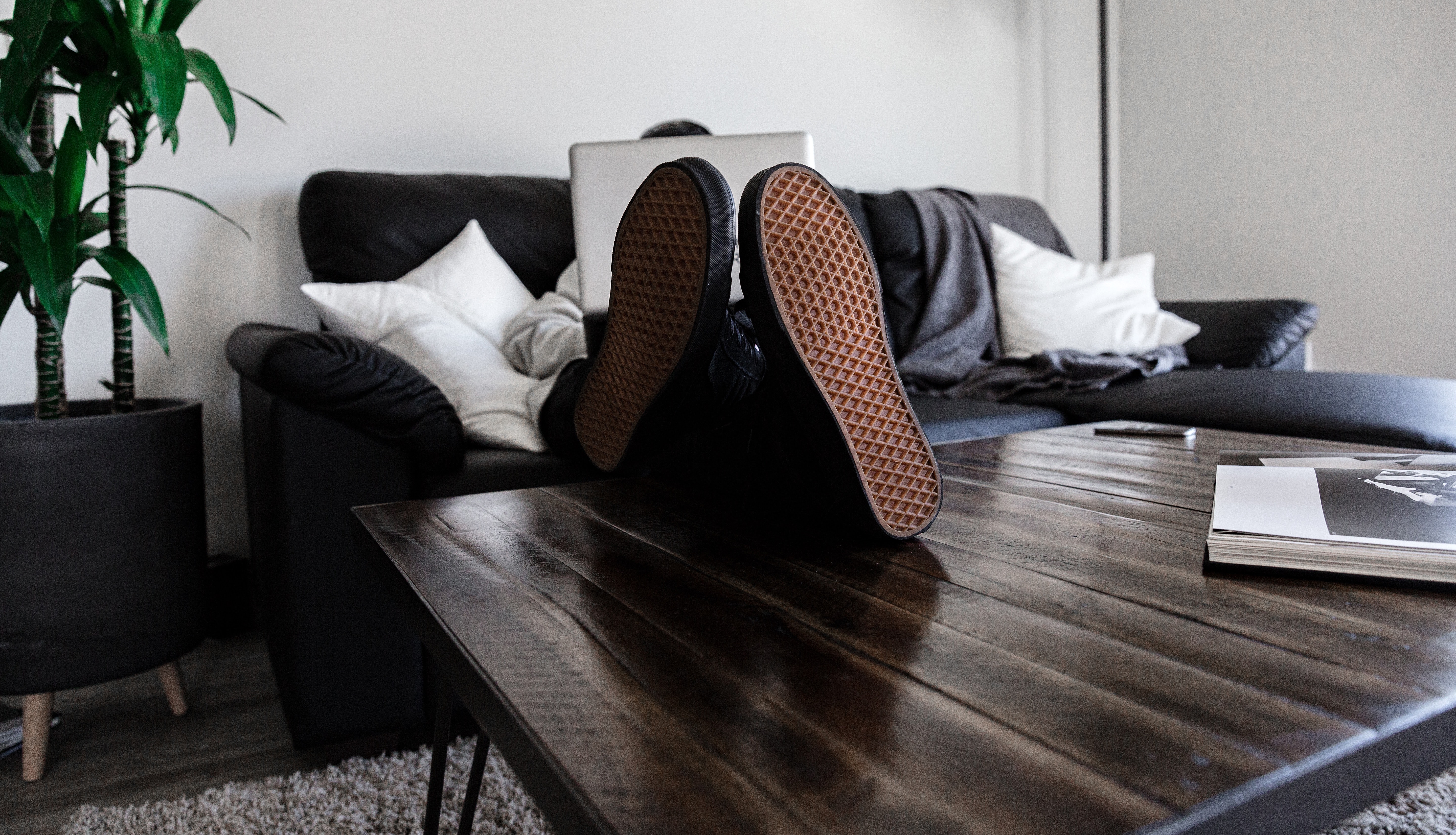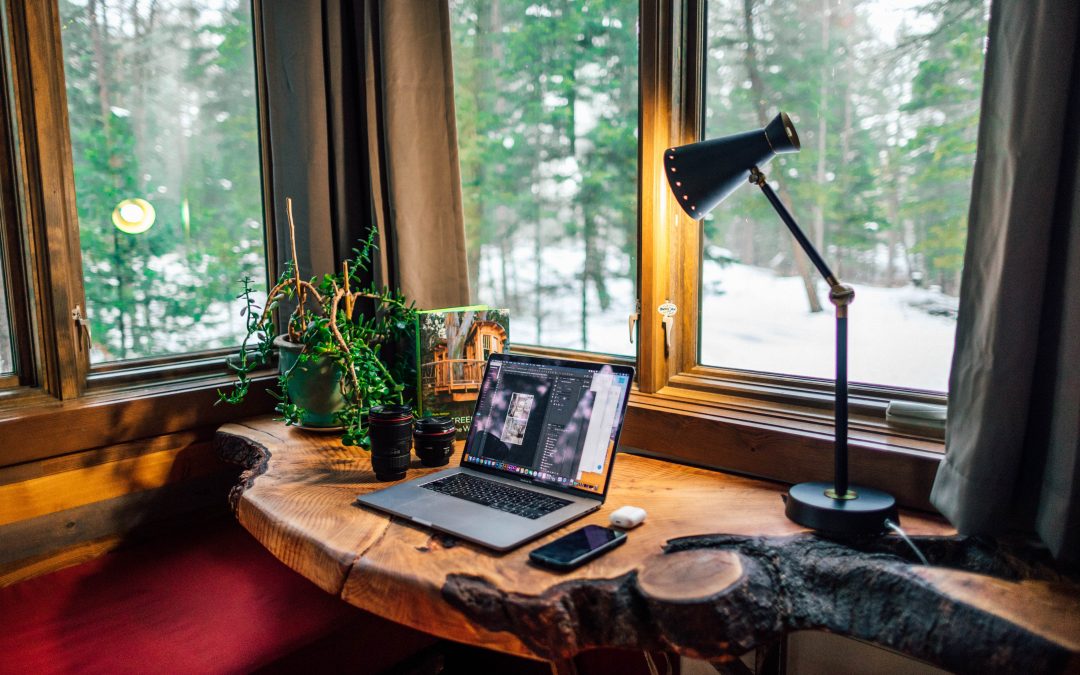Being a freelancer is often synonymous with working from home. Indeed, thanks to the internet and the growing digitalisation of jobs, it is now easier to work from almost anywhere and in any situation.
Some people decide to embrace life as a digital nomad, whereas most of them have chosen to base their business at home. One of the first clichés we associate with the home office is that “You are free to work whenever you want and take long weekends!”. Well, it’s exactly the opposite. A home office requires organisation, because if you aren’t organised, you won’t be able to enjoy the freedom it gives.
A home office is not an easy thing to create, especially when you’re starting life as a freelancer, so the Acolad Community asked freelance translators, interpreters and other members of the community how they organise working at home. Here are their best tips and tricks on how to be productive at home:
Why work from home?
A home office is a special way of organising your work and it’s often said that the best and the worst thing about being self-employed is… the freedom!
There are a lot of advantages to a home office:
- You have a more flexible schedule and can adapt it to your rhythm, depending on whether you’re a morning or an evening person;
- You can choose the time of your appointments;
- You have more time for your private life and family;
- You can make your “home” somewhere else and travel… provided that you have a good Wi-Fi connection 😉;
- You don’t have to take your car or public transport anymore, and you don’t have to worry about inconveniences such as traffic jams, overcrowded trains and long commutes between home and work.
For some people, working from home even helps to cope with mental illness, including depression, because they can work in a place with a more relaxed atmosphere and without all the disruption and stressful aspects of the outside world.
However, a home office isn’t always a positive experience. Indeed, you need to be vigilant to avoid falling into the following situations: being more isolated in the negative sense whilst being connected all the time. The tendency is to keep on working and checking emails even outside of normal working hours.

The survival guide to the home office by freelancers from the Acolad Community
A home office offers a completely different way of working, and therefore you absolutely must be very organised and rigorous to continue to be efficient. Here are all the tips from our experienced freelancers:
Establish your work routine – and stick to it
Not everyone has the same rhythm, so establish a routine that you think will, and that actually proves to work better. Some people stick to standard office hours, but this requires discipline because, as we said before, there is a temptation to take breaks. Other freelancers are morning people, and will work only during that time, while others work from the afternoon until the evening, even until midnight and beyond! In a nutshell, work when you think your concentration and productivity are at their best.
Define the structure of your schedule
Once you’ve chosen your working rhythm, you must structure your tasks to cover projects, responding to client queries and doing administrative tasks, and find the right balance to avoid working through your breaks, and vice versa. You can set up a timer and aim to respect the time allocated to each task, whether you are working or taking a break. This won’t prevent urgent projects cropping up, but at least you will have a better view of your schedule and be more efficient.
And if the current situation is providing fewer job opportunities, why not you use the spare time to work on online courses, networking, or other activities when you have fewer projects? 😉. Take things one day at a time and try not to plan too far into the future.
Don’t forget to take breaks when you’re working
As with every job in an office, breaks are essential to help maintain your concentration. As we said previously, working from home mustn’t turn into a situation where you’re working all day and all night to finish your projects more quickly. Enjoy time away from the computer: take a walk outside alone or with your dog, exercise, or spend time on your hobbies. If you’re lucky enough to have a balcony or a garden, enjoy the sunshine (if it makes an appearance) when you’re working. 😉

Minimise distractions as much as possible
When you’re working from home, you’re surrounded by all sorts of distractions (such as housework or pets) that can affect your concentration. So, juggling your private and professional life may be harder when you work at home, especially if you have children and you need to care for them when the schools are closed. One important thing to do is to have a dedicated workspace, as Galinie Petri, freelance translator, tells us:
“A separate room is ideal, but if that’s not possible, try to allocate a dedicated spot to work so your brain associates it with your job and you can leave it when you’re off the clock. This way you create mental and physical boundaries between work and personal life. It helps you disconnect.”
That way, you will be able to focus on projects and avoid everyday disturbances, such as young children playing or your cat lying on your computer or walking across your keyboard. 😉
Galinie Petri gives us other tips to optimize home office:
- My first tip is to pretend you’re actually going to the office. So, first off, shower, have some breakfast/coffee/tea, you may want to do some exercise/stretching/yoga, I don’t know, whatever. And get. properly. dressed. No pyjamas. You can wear nice fancy clothes if you want or comfy ones with slippers. It’s really up to you. But getting properly dressed and staying away from the couch will psychologically prepare you to start work, get ready. It helps you get into the right frame of mind.
- My last tip is to set. clear. boundaries. This is super important, especially if you have flatmates or if you live with your spouses, children, parents, dogs, cats, whatever. You know, you’re not just “hanging out” at home – you’re working, and these expectations need to be clearly stated and understood by everyone in the house. This way you make sure they respect your space and time during work, because they will know that when you “go to the office”, you’re not available to chat or play.
A home office is a particular way of working, but once you get used to it, it’s like any other “office” job… with greater flexibility. Feel free to go to our chat group if you have any tips to share and to chat with other freelancers!
